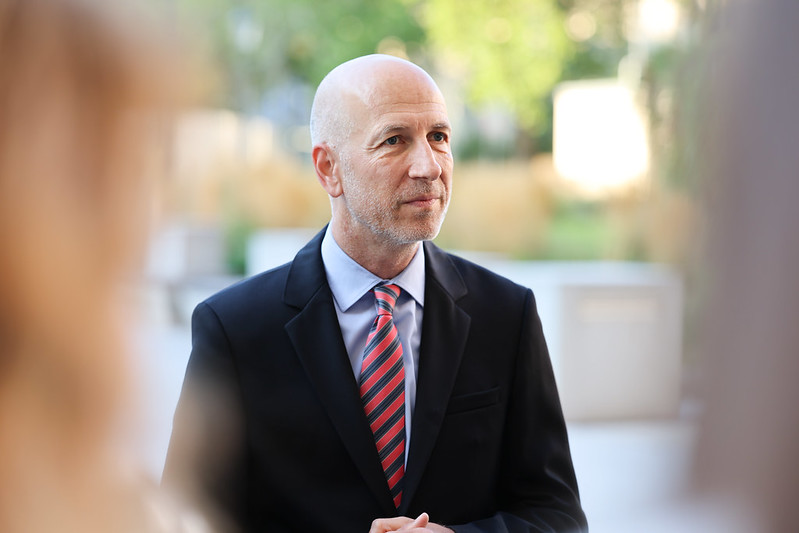By David Barwick – FRANKFURT (Econostream) – European Central Bank Governing Council member Martin Kocher on Friday said that the ECB was “in a good place” but had to remain watchful, given the presence of conflicting risks.
In a press conference at the Austrian National Bank (OeNB), which he heads since the retirement of Robert Holzmann at the start of the month, Kocher said that “in the euro area, inflation is where we want it to be,” with HICP “in the target area, slightly under but very close to” the ECB’s 2% target.
Growth was subject to “risks in both directions”, he said, citing geopolitical developments and remaining trade-related uncertainty. “On the other hand, he said, we have a high savings rate,” which would support demand, he said.
Moreover, he said, “at least we have a trade outcome, which gives more certainty.”
In setting monetary policy, the ECB would “look at what direction the risks are developing in” and determine its stance anew meeting by meeting, he said. “We have to continue to be vigilant.”
Asked during the Q&A to explain, he emphasized that the vigilance he had in mind was for monetary policymakers. He reiterated as well the paramount importance of the ECB’s meeting-by-meeting, data-dependent approach.
Kocher described his first Governing Council meeting as “very constructive, very intensive.” He rejected the idea that Austria-specific considerations would influence his monetary policy preferences. “It’s about the euro area, one cannot differentiate,” he said.
Explaining the decision to leave interest rates unchanged, he said the latest forecasts showed “no big difference” from the June projections.
“In my view, the environment hasn’t changed,” he said. “The environment was uncertain previously, it is still uncertain.” Still, there had been some improvement, he said.
In other comments, he said that the strong euro “naturally has an effect on the competitiveness of the euro area.”
The Austrian National Bank projected 0.8% domestic growth next year, subject to downside risks, it said.
“The most relevant external risk remains the high degree of trade policy uncertainty,” the OeNB said. “Contrary to earlier expectations, the EU-US trade terms agreed on July 27 have not provided long-term certainty.”
Soon after the trade deal was agreed, the US applied steel and aluminum tariffs to other items, it noted. “The US administration's trade policy remains erratic, and further industry-specific tariffs (pharmaceuticals, semiconductor products) cannot be ruled out,” it said.

